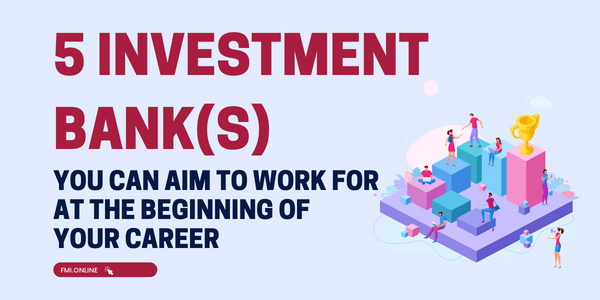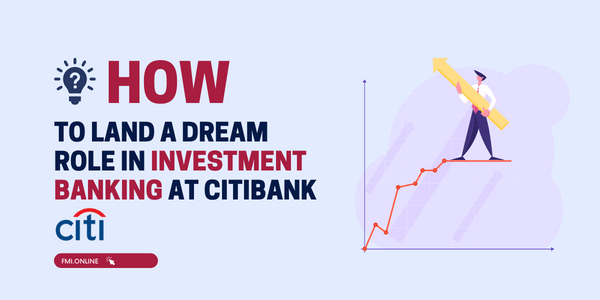People familiar with the investment banking industry are most likely to have at the least a working knowledge of equities and equity markets. Many people entering investment banking see themselves working as a trader on an equities desk, trading a company’s shares or different types of derivatives in those shares.
Ask people about ‘Fixed income trading,‘ and you’ll probably get a few blank looks. However, there are several excellent reasons to consider fixed income trading over equities trading when considering a career in investment banking.
The Global Markets division of an investment bank generates revenues by executing agency trades and making markets.
Agency trades are buy or sell orders executed by a trader on a Global Markets desk on behalf of a client. Placing these agency orders on behalf of clients generates fees for the investment bank. These clients are typically institutional investors such as asset managers, pension funds, insurance companies, or hedge funds. Agency trades are executed on exchanges, with other investment banks, or a specialist dealer or broker.
Market making means a trader on a Global Markets desk simultaneously advertises bids and offers (also called asks) for a specific asset to the market. The revenues generated through market making are the difference between the bid and offer price known as the spread.
Fixed income trading doesn’t happen on exchanges like many equity trades because fixed income markets are over the counter or OTC. This means executing fixed income agency trades with other traders, brokers or dealers. It can also involve market making.
To see how fixed income market making works, consider an asset management client who wants to sell 10,000 corporate bonds. Each bond has a par value of $1,000. The fixed income market maker knows these bonds are trading at a discount and so quotes a bid-offer spread of $970 – $990
If the asset management client decides to execute their sell order with the market maker, they ‘hit’ the market maker’s bid of $970. This is because the bid is the price the market maker is willing to buy the bonds for, and the asset manager is selling. The total value of the trade will be $970 x 10,000 = $9,700,000.
The market maker now owns the bonds. This is called being long. A significant part of being a fixed income trader is managing their risk by selling the bonds in the market before they change in price. The market maker wants to find a buyer for the bonds willing to pay the offer price of $990. If successful, the market maker will make the spread of $20 per bond, or $200,000.
You can find out more about market making in Fmi’s Global Markets pathway.
Here are our top five reasons for choosing a career in fixed income trading.
Reason 1 – A wide variety of desks to work on
Fixed income desks are a part of FICC – Fixed Income, Currencies, and Commodities and include a huge range of different desks, more so than equity trading. These include corporate bonds, government bonds, credit-related derivatives, money markets, mortgage-backed securities, and more.
With all these different trading desks, career paths within FICC are wide open. You have the opportunity to find a desk that suits your strengths and attributes.
Reason 2 – Lots of roles working alongside fixed income trading
It might be you prefer working alongside traders rather than working in the pressurized role trading is. Fixed Income presents many opportunities to do so.
Fixed income sales suit outgoing, social people who like developing client relationships and discussing financial markets with clients. Salespeople need to have their fingers on the pulse with what’s happening in the market and the technical ability to be the conduit between clients and other internal roles within an investment bank.
Many investment banks consider Structuring is a separate team within fixed Income, given the complexity of some products. Structurers have strong quantitative skills, creating customized solutions for clients with specific and complex needs.
Strategy is a separate desk in some Global Markets divisions. Working in this team means you’ll develop investment recommendations for Fixed Income securities based on market fundamentals and technical research.
Reason 3 – Fixed income trading is harder to automat
In general, the simpler and more liquid a security is, the more likely it is to be automated. On the other hand, less liquid complex securities are less likely it is to be automated.”
The good news is that many fixed Income products are complex; the bad news is that simpler areas such as investment-grade corporate bonds are still being automated. In January 2021, the average daily volume for fixed income electronic trading reached a new record of $10.6bn, surpassing the previously set record of $10.3bn in May 2020, according to a report by Greenwich Associates.
Fixed income traders will not disappear. Even so, if you want a career in fixed income trading or Structuring, some good advice would be to gain competency in computer programming. Salespeople will have an advantage if they have a knowledge of quant research and algorithmic trading strategies.
Reason 4 – the macro story
If you like macroeconomics with a little bit of maths, the rates desk may suit you perfectly. The rates desk trades government bonds, interest rate swaps, futures, and structured products based on rates, options, and swaps.
This requires a deep understanding and focus on macroeconomics, as interest rates and inflation expectations are key drivers of value and price for these products. This means understanding what is happening with global and regional economic growth, exchange rates, and monetary and fiscal policies of governments.
Junior traders invest a lot of their time researching to predict changes in interest rate curves used to price fixed income securities. Products traded by the rates desk tend to be relatively more complex, so automation is unlikely soon. However, like many roles within the Global Markets division of an investment bank, having some computer science experience will be advantageous.
Reason 5 – the credit story
Credit traders execute trades involving corporate bonds. Traders on this desk execute trades of bonds issued by companies such as Apple, Tesla, or Exxon Mobile. Desks are often split between investment-grade bonds with little or low credit risk and high yield bonds with higher credit risk. Credit risk is the risk the issuer may default and is most commonly measured using credit ratings such as those issued by Fitch, S&P, or Moody’s.
Credit traders are the most micro-orientated traders within all of FICC. In other words, while credit traders do need to be aware of broader macroeconomic conditions, company-specific events are critical in assessing and valuing corporate bonds.
Credit traders spend much of their time analyzing companies and their credit risk alongside their credit research colleagues. They will look at many different types of credit ratios and stress testing these ratios to see if companies might default if economic conditions deteriorate.
Some banks are in the process of trying to automating corporate-bond trading as much as possible. While this is a consideration if you are looking for a career as a credit trader, it is happening slower than in equity markets.
Finally…. advice for fixed income interviews
Applicants will get more questions about macroeconomics than other areas within investment banking. This means having a deep understanding of GDP, yield curves, inflation, interest rates, exchange rates. You must apply these concepts to financial markets and how they impact different products within FICC.
You can access our Fixed income glossary to get familiar with the key terms and jargon used in fixed income markets and by any Financial Analyst.












 60+ hours
60+ hours 9 courses
9 courses



